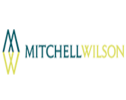Generation X caught in the middle of Australia's economic tranformation
 The last Ford ute rolling off the production line in Victoria late last year was a sign of the times. It’s now commonplace for industries with long histories in Australia to transform before our eyes in the wake of globalisation and technological change. And it is Generation X – smack bang in the middle of their working lives – that will feel some of the biggest impacts of this transformation. Too old to compete with digital natives in new technology jobs but a long way from retirement, this generation must work hard to reinvent itself and thrive in our rapidly changing economy.
The last Ford ute rolling off the production line in Victoria late last year was a sign of the times. It’s now commonplace for industries with long histories in Australia to transform before our eyes in the wake of globalisation and technological change. And it is Generation X – smack bang in the middle of their working lives – that will feel some of the biggest impacts of this transformation. Too old to compete with digital natives in new technology jobs but a long way from retirement, this generation must work hard to reinvent itself and thrive in our rapidly changing economy.
Where are all the jobs going?While Ford cars will now be made in other countries including Thailand, where labour costs are a fifth of the going rate in Australia, design and engineering will still take place here - highlighting our transition from a basic manufacturing and raw materials economy to one based on a highly skilled workforce creating higher value inputs. There are other examples, like Boeing reinforcing its long-term commitment to manufacturing high tech wings for its Dreamline aircraft in Port Melbourne where they are shipped to Seattle for assembly. It’s not that we won’t make things in Australia anymore, we’ll just make more technically advanced things suited to our skills and wages profile and we’ll continue our shift to a services led economy offering healthcare, education, finance and tourism services to the growing middle class in Asia and other developing economies.
How can you resell for the next 20 years?If you are in a career or industry that is part of this transition, proactively managing your career and reskilling for the years ahead is crucial. A couple of decades ago it wasn’t the end of the world if you got made redundant at 55 – you could get by until you qualified for the pension and consider retiring early and making your income stretch. Not anymore. The average male in their 40’s today will live to 82 – that’s a lot of life left to fund, so it’s important to ensure you have marketable skills for the years ahead. Bear in mind the government will raise the retirement age to 67 by 2023 and it’s questionable whether the pension will even exist in its current form by then.
My advice? Have a career plan, reassess your technical skills every two years and undertake any necessary training or certifications to remain current. Focus on improving your transferable skills like team leadership, research & analysis or project management – so you are able to make a sideways move if your particular division or function is outsourced. Some 160 of the 800 workers at the Broadmeadows Ford plant were able to transition into other roles. Make sure you have the right skills to be among the 20% of workers who can adapt if faced with a restructure.
How can you build wealth in a low-growth environment?I’ve talked about the challenge of low rates of return throughout this series and those aged 30-49 will also face the challenge of building and protecting wealth in a low growth environment. Key questions to ask yourself include: Should I rent or buy? Should I consider a different profile of property to get into the market? Do I have diversified investments so I can build wealth in growth assets while keeping enough cash to pay the bills and service debt? Do I have the lowest possible non tax-deductible debt? Do I have enough insurance if I become ill and can’t work? Should I fix all or part of my mortgage while interest rates are so low? Seek advice about how all of these questions may impact your personal circumstances, but importantly don’t become paralysed and do nothing. These are your peak income earning years, so it’s critical to make the most of your money now to create the lifestyle you want later on.
How can you maximise superannuation?Superannuation remains one of the best ways to invest your money for the future while minimising the amount of tax you have to pay. The government will soon introduce a raft of changes to superannuation that will cap the amount of additional contributions that can be made at the concessional tax rate of 15%. Despite all the hype, most people can still be doing more to top up their super and build future wealth through the power of compounding – earning interest on your interest – and dollar cost averaging: where you purchase a fixed dollar amount of a particular investment on a regular schedule to hedge against price fluctuations and build a robust, diversified portfolio.
Need help to reassess or focus your plans?If any of these issues concern you or you’d like to create a personal plan to maximise you income, savings and investments and minimise tax, I‘d be happy to help.



